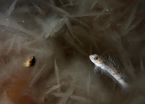(Press-News.org) Thursdays to Sundays are when people both exercise more and drink more
Study used smartphones to record daily alcohol intake and physical activity
Findings differ from past research on physical activity and exercise
CHICAGO --- A new Northwestern Medicine® study finds that on days when people exercise more -- typically Thursdays to Sundays -- they drink more alcohol, too.
This is the only study to use smartphone technology and a daily diary approach for self-reporting physical activity and alcohol use.
"Monday through Wednesday people batten down the hatches and they cut back on alcohol consumption," said David E. Conroy, lead author of the study. "But once that 'social weekend' kicks off on Thursdays, physical activity increases and so does alcohol consumption."
Conroy is a professor of preventive medicine and deputy director of the Center for Behavior and Health at Northwestern University Feinberg School of Medicine. He also is a faculty affiliate of the Methodology Center at The Pennsylvania State University, where the research was conducted.
The study was published online in Health Psychology, an American Psychological Association journal.
"Insufficient physical activity and alcohol use are both linked to many health problems, and excessive alcohol use has many indirect costs as well," Conroy said. "We need to figure out how to use physical activity effectively and safely without having the adverse effects of drinking more alcohol."
One hundred and fifty study participants, ages 18 to 89, recorded their physical activity and alcohol use in smartphones at the end of the day. They did so for 21 days at a time, at three different times throughout one year.
Other studies on physical activity and alcohol relied on people self-reporting their behavior over the past 30 days.
"In this study, people only have to remember one day of activity or consumption at time, so they are less vulnerable to memory problems or other biases that come in to play when asked to report the past 30 days of behavior," Conroy said. "We think this is a really good method for getting around some of those self-report measurement problems."
The previous studies, which relied on 30-day self-reporting, concluded that physically active people tend to drink more alcohol -- something this study did not find.
"We zoomed in the microscope and got a very up-close and personal look at these behaviors on a day-to-day basis and see it's not people who exercise more drink more -- it's that on days when people are more active they tend to drink more than on days they are less active," Conroy said. "This finding was uniform across study participants of all levels of physical activity and ages."
Through future studies at the Center for Behavior and Health at Feinberg, Conroy hopes to discover what drives people to drink more on days they exercise more.
"Perhaps people reward themselves for working out by having more to drink or maybe being physically active leads them to encountering more social situations where alcohol is consumed -- we don't know," Conroy said. "Once we understand the connection between the two variables we can design novel interventions that promote physical activity while curbing alcohol use."
INFORMATION:
The National Institute on Aging grant AG035645 and the National Institute on Drug Abuse grant P50 DA010075 funded this study. Other study authors include Nilam Ram, Aaron L. Pincus, Donna L. Coffman, Amy E. Lorek, Amanda L. Rebar and Michael J. Roche of The Pennsylvania State University.
We drink more alcohol on gym days
People of all ages more likely to indulge in alcohol on days when they're more active
2014-09-22
ELSE PRESS RELEASES FROM THIS DATE:
The fine line between breast cancer and normal tissues
2014-09-22
Boston, MA – Up to 40 percent of patients undergoing breast cancer surgery require additional operations because surgeons may fail to remove all the cancerous tissue in the initial operation. However, researchers at Brigham and Women's Hospital (BWH) have successfully tested a tool they developed that will help surgeons better distinguish cancerous breast tissue from normal tissue, thereby decreasing the chances for repeat operations.
The study is published online the week of September 22, 2014 in the Proceedings of the National Academy of Sciences.
The tool, known ...
Plant variants point the way to improved biofuel production
2014-09-22
Manufacturing biofuels from food crop by-products such as straw could be made quicker and cheaper thanks to the work of scientists in the UK and France.
Researchers funded by the Biotechnology and Biological Sciences Research Council (BBSRC) have discovered variant straw plants whose cell walls are more easily broken down to make biofuels, but which are not significantly smaller or weaker than regular plants.
The discovery could help ease pressure on global food security as biofuels from non-food crops become easier and cheaper to make.
The impact of carbon emissions ...
Study: Antifreeze proteins in Antarctic fishes prevent freezing…and melting
2014-09-22
CHAMPAIGN, Ill. — Antarctic fishes that manufacture their own "antifreeze" proteins to survive in the icy Southern Ocean also suffer an unfortunate side effect, researchers report: The protein-bound ice crystals that accumulate inside their bodies resist melting even when temperatures warm.
The finding is reported in the Proceedings of the National Academy of Sciences.
"We discovered what appears to be an undesirable consequence of the evolution of antifreeze proteins in Antarctic notothenioid fishes," said University of Oregon doctoral student Paul Cziko, who led ...
Healthy lifestyle choices may dramatically reduce risk of heart attack in men
2014-09-22
WASHINGTON (Sept. 22, 2014) — Following a healthy lifestyle, including maintaining a healthy weight and diet, exercise, not smoking and moderating alcohol intake, could prevent four out of five coronary events in men, according to a new study publishing today in the Journal of the American College of Cardiology.
While mortality from heart disease has declined in recent decades, with much of the reduction attributed to medical therapies, the authors said prevention through a healthy lifestyle avoids potential side effects of medication and is more cost effective for population-wide ...
Immune response turned up, not down, by flu during pregnancy, Stanford/Packard study finds
2014-09-22
Pregnant women have an unusually strong immune response to influenza, an unexpected finding that may explain why they get sicker from the flu than other healthy adults, new research from the Stanford University School of Medicine and Lucile Packard Children's Hospital Stanford has found.
The results were surprising because immune responses are thought to be weakened by pregnancy to prevent the woman's body from rejecting her fetus.
The study, which will be published online Sept. 22 in the Proceedings of the National Academy of Sciences, is the first to examine the ...
Firelight talk of the Kalahari Bushmen
2014-09-22
SALT LAKE CITY, Sept. 22, 2014 – After human ancestors controlled fire 400,000 to 1 million years ago, flames not only let them cook food and fend off predators, but also extended their day.
A University of Utah study of Africa's Kalahari Bushmen suggests that stories told over firelight helped human culture and thought evolve by reinforcing social traditions, promoting harmony and equality, and sparking the imagination to envision a broad sense of community, both with distant people and the spirit world.
Researchers previously studied how cooking affected diets and ...
University of Utah engineers unlock potential for faster computing
2014-09-22
SALT LAKE CITY, Sept. 22, 2014 – University of Utah engineers discovered a way to create a special material – a metal layer on top of a silicon semiconductor – that could lead to cost-effective, superfast computers that perform lightning-fast calculations but don't overheat.
This new "topological insulator" behaves like an insulator on the inside but conducts electricity on the outside and may pave the way for quantum computers and fast spintronic devices.
The research, led by University of Utah materials science and engineering professor Feng Liu, was published today ...
Lego-like modular components make building 3-D 'labs-on-a-chip' a snap
2014-09-22
Thanks to new LEGO®-like components developed by researchers at the USC Viterbi School of Engineering, it is now possible to build a 3-D microfluidic system quickly and cheaply by simply snapping together small modules by hand.
Microfluidic systems are used in many fields including engineering, chemistry and biotechnology to precisely manipulate small volumes of fluids for use in applications such as enzymatic or DNA analysis, pathogen detection, clinical diagnostic testing, and synthetic chemistry. Traditionally, microfluidic devices are built in a cleanroom on a two-dimensional ...
Platelets modulate clotting behavior by 'feeling' their surroundings
2014-09-22
Platelets, the tiny cell fragments whose job it is to stop bleeding, are very simple. They don't have a cell nucleus. But they can "feel" the physical environment around them, researchers at Emory and Georgia Tech have discovered.
Platelets respond to surfaces with greater stiffness by increasing their stickiness, the degree to which they "turn on" other platelets and other components of the clotting system, the researchers found.
"Platelets are smarter than we give them credit for, in that they are able to sense the physical characteristics of their environment and ...
Genetic switch regulates a plant's internal clock based on temperature
2014-09-22
Scientists have discovered a key molecular cog in a plant's biological clock – one that modulates the speed of circadian (daily) rhythms based on temperature.
Transcription factors, or genetic switches, drive gene expression in plants based on external stresses – such as light, rain, soil quality, or even animals grazing on them. A team of researchers at USC has isolated one, called FBH1, that reacts to temperature – tweaking the rhythm here and there as needed while in keeping it on a consistent track.
"Temperature helps keep the hands of the biological clock in the ...
LAST 30 PRESS RELEASES:
Scientists develop new gut health measure that tracks disease
Rice gene discovery could cut fertiliser use while protecting yields
Jumping ‘DNA parasites’ linked to early stages of tumour formation
Ultra-sensitive CAR T cells provide potential strategy to treat solid tumors
Early Neanderthal-Human interbreeding was strongly sex biased
North American bird declines are widespread and accelerating in agricultural hotspots
Researchers recommend strategies for improved genetic privacy legislation
How birds achieve sweet success
More sensitive cell therapy may be a HIT against solid cancers
Scientists map how aging reshapes cells across the entire mammalian body
Hotspots of accelerated bird decline linked to agricultural activity
How ancient attraction shaped the human genome
NJIT faculty named Senior Members of the National Academy of Inventors
App aids substance use recovery in vulnerable populations
College students nationwide received lifesaving education on sudden cardiac death
Oak Ridge National Laboratory launches the Next-Generation Data Centers Institute
Improved short-term sea level change predictions with better AI training
UAlbany researchers develop new laser technique to test mRNA-based therapeutics
New water-treatment system removes nitrogen, phosphorus from farm tile drainage
Major Canadian study finds strong link between cannabis, anxiety and depression
New discovery of younger Ediacaran biota
Lymphovenous bypass: Potential surgical treatment for Alzheimer's disease?
When safety starts with a text message
CSIC develops an antibody that protects immune system cells in vitro from a dangerous hospital-acquired bacterium
New study challenges assumptions behind Africa’s Green Revolution efforts and calls for farmer-centered development models
Immune cells link lactation to long-lasting health
Evolution: Ancient mosquitoes developed a taste for early hominins
Pickleball players’ reported use of protective eyewear
Changes in organ donation after circulatory death in the US
Fertility preservation in people with cancer
[Press-News.org] We drink more alcohol on gym daysPeople of all ages more likely to indulge in alcohol on days when they're more active





